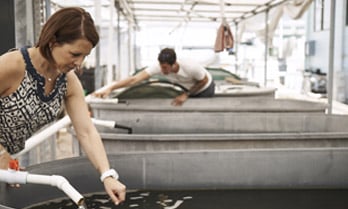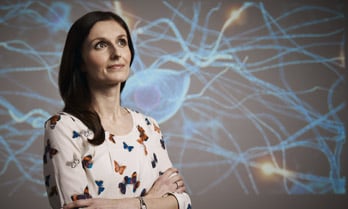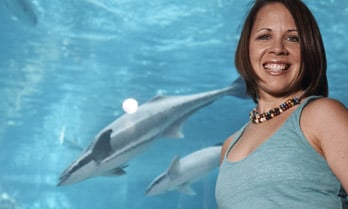Our 2017 Fellow - Deborah Williamson
10 January 2018
After the whirlwind of being awarded the For Women in Science Fellowship, we asked our 2017 Fellows a bit about their research and what it meant to be awarded the Fellowship.
Tackling the threat of antibiotic resistance

Deborah is a clinical microbiologist tackling the threat of antibiotic resistance. The ability of a bacteria to resist the effects of antibiotic treatments is leaving health care professionals with limited or in some instances no available treatment options.
Deborah believes the single most powerful contributor is the global unrestrained use of antibiotics. Therefore, her research aims to understand the mechanisms of antibiotic resistance to better inform appropriate use of antibiotics in both a hospital and community setting.
Your research is clearly important to public health. What could happen if we don’t address antibiotic resistance?
Antibiotic resistance is one of the biggest health issues of the modern age - at least 700,000 people die each year from drug-resistant infections. Unless action is taken to halt the practices that have allowed antimicrobial resistance to spread and ways are found to develop new types of antibiotics, we could return to the days when routine operations, simple wounds or straightforward infections could pose real threats to life, and the world could face the same risks as it did before Alexander Fleming discovered penicillin in 1928.
More broadly, areas such as tourism, personal hygiene, and farming are also affected by the issue of antibiotic resistance. The most important steps we can take to combat antibiotic resistance are: 1) improved understanding of how antibiotic resistant bacteria spread (the focus of my research) and preventing infections in the first place; 2) reducing inappropriate use of antibiotics in human and animal health; and 3) developing new antibiotics.
Why is it so important to increase the representation of women in science?
Because women are doing exceptional research!
Women have the ability and potential to become fantastic leaders and we need to access the full potential of our population - be that men or women.
Collaboration is the foundation of STEMM research. By improving diversity (including increased women) we can enrich insight of research projects and increase the chances for true innovation.
We must create a progressive and inclusive environment that allows more women in science to reach leadership position and excel. This is why programs such as the L'Oréal-UNESCO For Women in Science Fellowship are so important.



